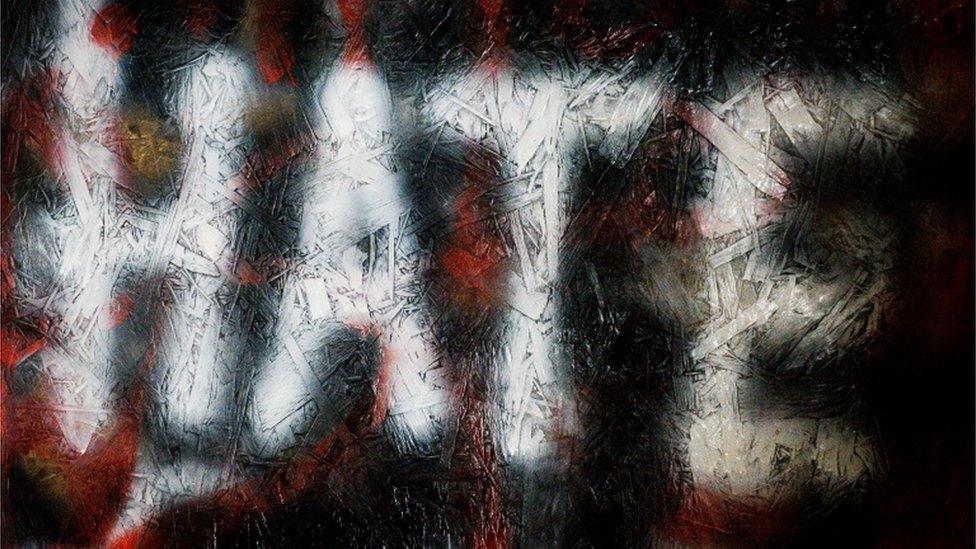Homophobic hate crime charges fall as reports soar
- Published
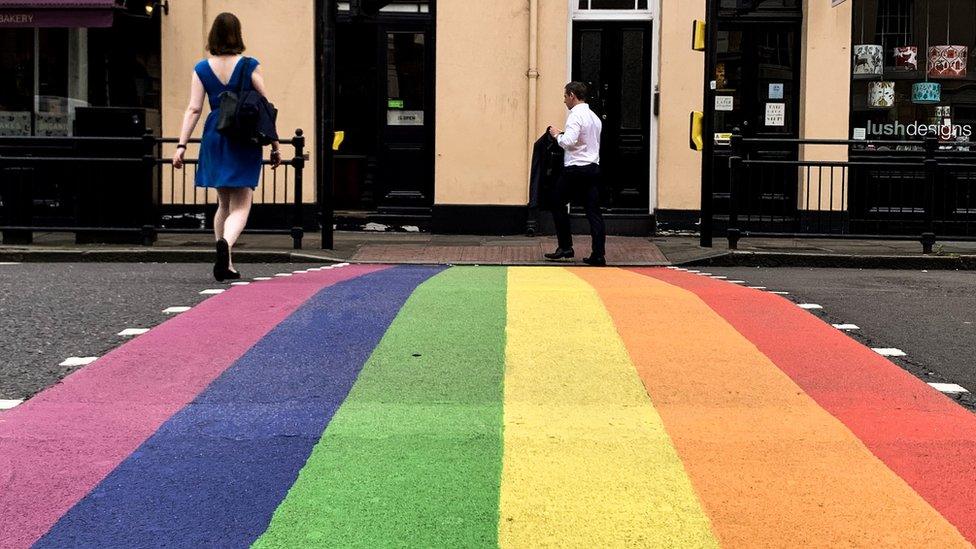
In London, which holds an annual Pride parade, the number of people charged or summonsed for homophobic hate crimes has fallen by around a third
Fewer people are being prosecuted for homophobic hate crimes despite rising numbers of potential victims coming forward, figures suggest.
Recorded reports of homophobic abuse in the UK increased from 5,807 in 2014-15, to 13,530 in 2018-19.
But during the same period, the number of prosecutions fell from 1,157 to 1,058 - from 20% of all reports to 8%.
The National Police Chiefs' Council said those cases often involved a lack of witnesses and evidence.
It comes as police forces continue to call on victims to come forward.
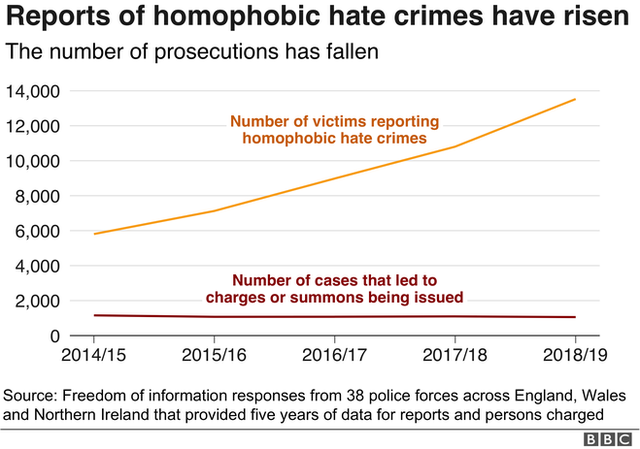
The figures have been revealed after BBC Radio 5 Live Investigations sent a Freedom of Information request to 46 police forces across the UK and received full responses from 38 forces.
Data from Police Scotland was only partial and was not included in the analysis.
A hate crime is defined as "any criminal offence which is perceived, by the victim or any other person, to be motivated by a hostility or prejudice".

'It happens two or three times a week'
Lily Cherry has shared experiences with the BBC's LGBT Correspondent Ben Hunte
"A guy walked up to me and my friends and said 'What is this, the fat ugly homosexual squad?'", said 17-year-old Lily Cherry, from Woodseats in Sheffield.
"We reported it to the police and they said they'd check CCTV, but nothing came of it.
"I think that the police and authorities should do more to protect people who are in the minority and they should take it more seriously and in depth.
"I think it's getting to the point where this abuse is so regular and so often reported that it can just be dismissed too easily."
South Yorkshire Police said it investigated this case but "due to the lack of CCTV and other investigative opportunities, no suspect(s) have been identified and therefore a charge in this matter is not likely."
"We take all reports of hate crime incredibly seriously and would welcome a further conversation with the victim in this matter to inform our learning," it added.

Two of the most dramatic rises in reports of homophobic hate crime were experienced by Yorkshire's biggest forces - West Yorkshire and South Yorkshire Police.
West Yorkshire Police has seen reports increase from 172 to 961 over the past five years, while South Yorkshire police has seen reports rise from 73 to 375.
Angela Williams, of West Yorkshire Police, said rising reports were in part down to "improvements in the way we record crime and the fact that many victims have the confidence to come forward".
The proportion of crimes that resulted in a charge or summons, however, fell over the same time, from 19% to 4% in West Yorkshire and from 10% to 3% in South Yorkshire.

Analysis by Ben Hunte, LGBT Correspondent
These new figures will disappoint the LGBT community but they will not be a great surprise to many.
With Pride parades regularly taking place in many UK cities, on the surface it seems like society is much more accepting of LGBT people living their lives.
In reality, however, every single day LGBT people across the UK are contacting the police about verbal and physical abuse they experience just because of their sexuality.
A number of abuse victims have told me the process of trying to convict their abusers has put them off. They have gone as far as dropping their cases in fear of having to recount traumatic experiences, or being inadvertently outed to their friends, family or employers.
Trips to police stations, as well as calls and visits from police officers to discuss their LGBT abuse experiences can be daunting if that person is not actually open about their LGBT status.
They say that all too often it is difficult to prove that an assault was motivated by hostility towards the victim's sexuality or gender identity, so attackers currently get off with lighter sentences.

Two of Britain's largest police forces - London's Metropolitan Police and Greater Manchester Police - have also seen an increase in the number of reported crimes.
The Met saw reports rise from 1,561 in 2014-2015 to 2,315 in 2018-19, while the number of cases that led to charges or summons fell from 246 to 165.
Greater Manchester Police saw reports rise from 423 to 1,159, with the number of charges falling from 82 to 50.
A Met Police spokesman said: "Many of these non-violent offences present less evidential opportunities and victims often feel that there is a barrier between bringing the matter to court and prefer to make police aware of each offence."
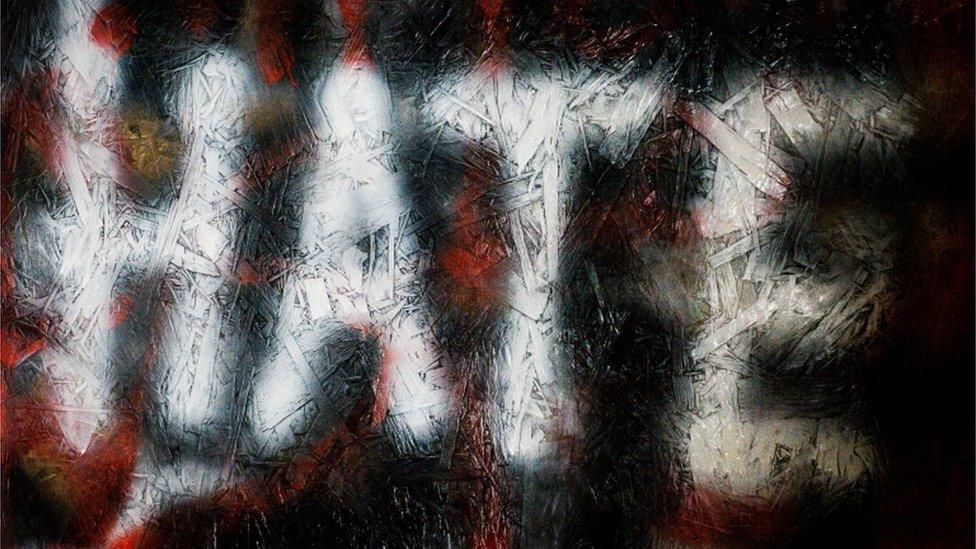
Police said there was little evidence for many homophobic hate crimes and victims may choose not to bring a case to court
A spokesman for the National Police Chiefs' Council said: "Unfortunately, with many cases, there are often no witnesses to these crimes and scarce evidence - this may lead to police being unable to identify a suspect."
The Home Office said it was recruiting 20,000 additional police officers and investing a further £85m in the Crown Prosecution Service over the next two years to "ensure it can deal with the cases brought by the police".
Baroness Williams, minister for countering extremism, said: "Victims should not have to put up with this venomous abuse and we will do all we can to support them.
"I would urge anyone who is affected by or has witnessed homophobic abuse to contact the police. Partners across the criminal justice system and government are working hard to empower victims to report incidents and ensure perpetrators are punished."
- Published27 June 2019
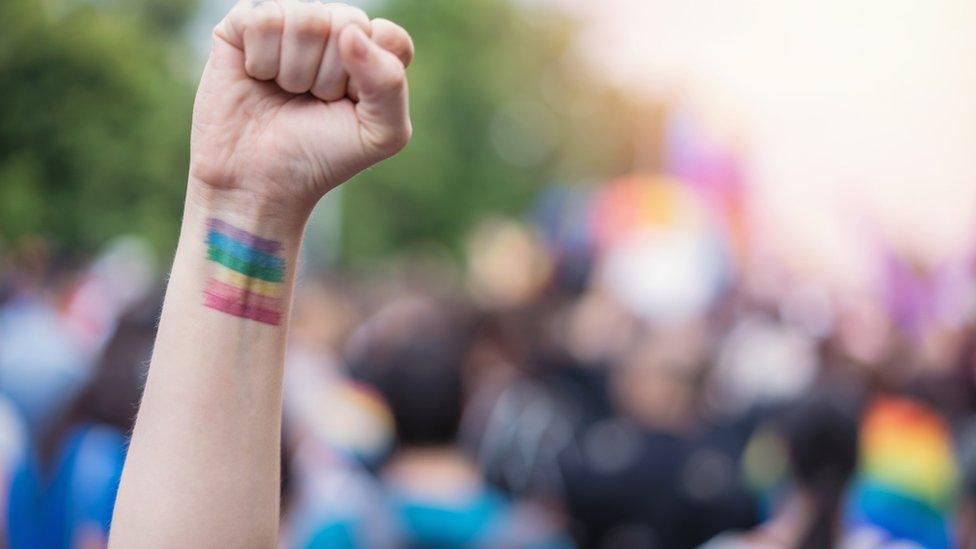
- Published10 July 2019
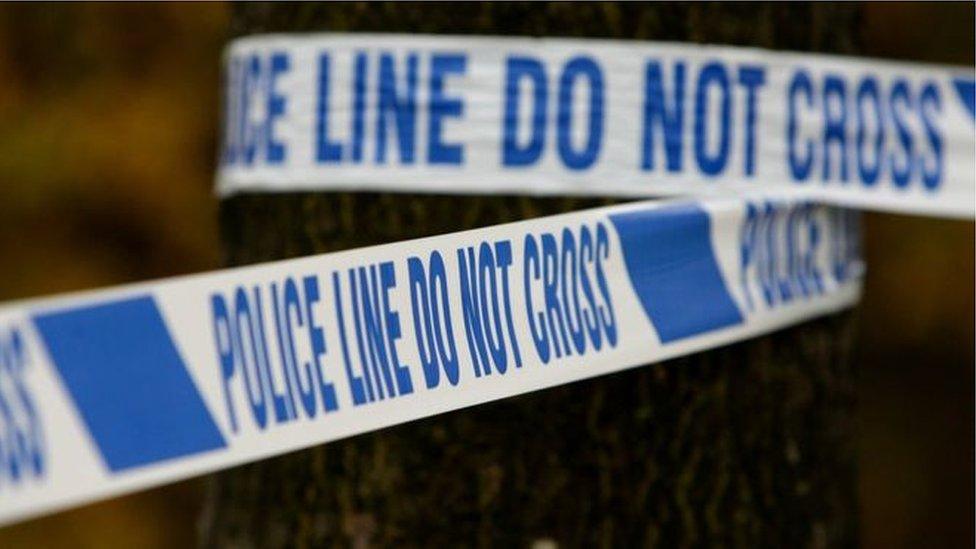
- Published1 July 2019
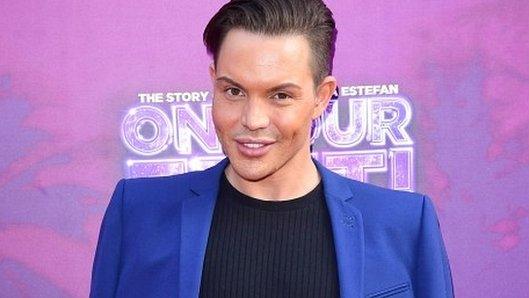
- Published7 June 2019
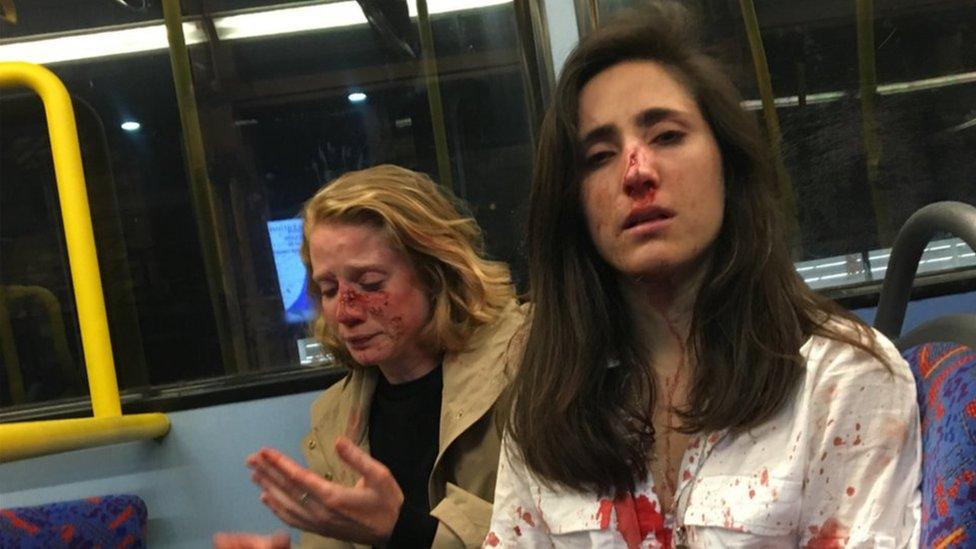
- Published9 May 2018
